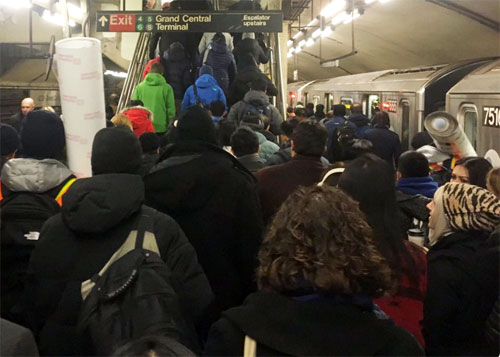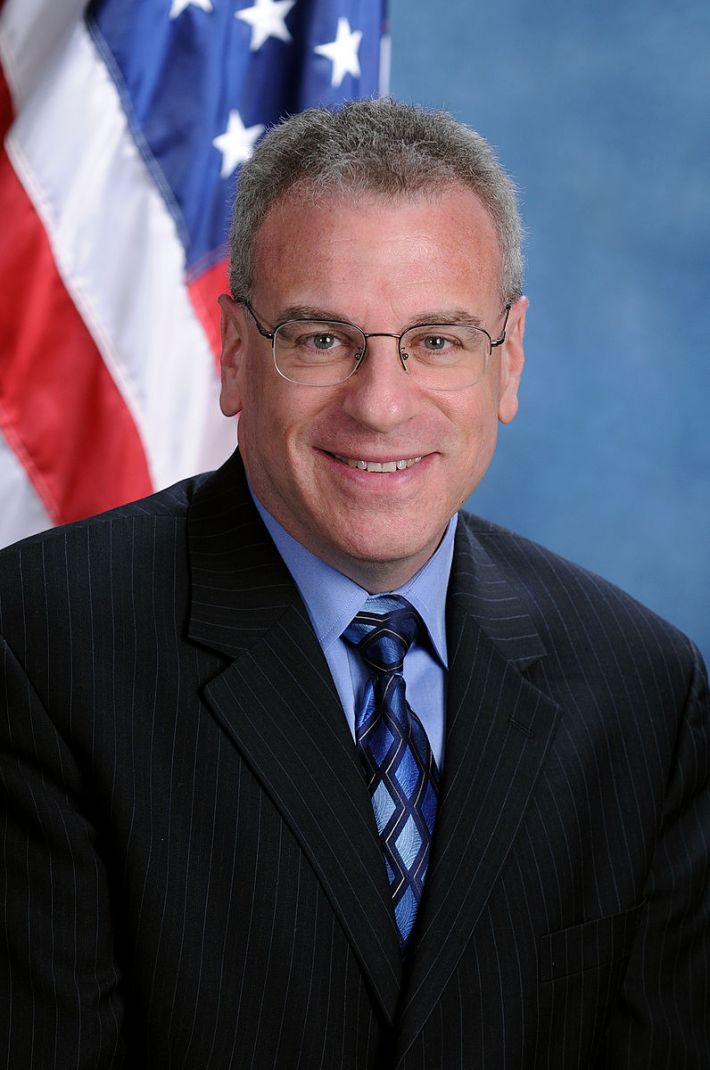One of the encouraging sights in an otherwise dismal season for subways and buses in NYC has been the emergence of Bronx representative Jeffrey Dinowitz as a voice for better transit. Dinowitz, who can exercise oversight of the MTA via his new perch as chair of the Assembly Committee on Corporations, has worked with transit advocates to speak up for reliable bus service and against political interference in the MTA's budget.
His engagement on these issues is helpful and will hopefully continue, but it's not enough.
The cratering of NYC transit service has created an opening to solve thorny problems that have become deeply embedded in the MTA over many years. (For reference, see this wide-ranging review of MTA dysfunction by Alon Levy in Vox.) So far, though, Governor Cuomo has papered over these problems or pretended they don't exist, and MTA bosses are loathe to go public on their own initiative.
Transit riders need public servants who'll muster every available means to shed more light on the causes of NYC's transit crisis, and Dinowitz's position in the Assembly affords him one of the few bully pulpits that can focus sustained public attention on the MTA. In an interview that we published Tuesday, however, it's clear that Dinowitz is still holding back.
Dinowitz stressed that his priority is to "come to a consensus that we need to drastically increase funding for the MTA," that high costs at the transit agency are "almost like a fact of life," and that an oversight hearing on bus service may yield limited results because "I think I know the answers already."
New York City transit riders will be better off if Dinowitz reconsiders these positions. New sources of revenue are important because they can reduce the MTA's alarming dependence on debt, but money alone isn't going to make trains and buses run reliably. NYC's ridiculous transit costs are not inevitable in big cities with older systems, as London and Paris have proven, and it's hard to imagine making good progress on system-wide reliability and capacity without wrestling costs under control.
Meanwhile, there's a lot that the public is just beginning to understand about why subway and bus service is falling behind, and we've never been in a better position to find out more. The level of press attention devoted to NYC transit is very high at the moment, and the quality of reporting is generally good. Sources inside the MTA who want to turn things around are giving reporters useful scoops. Transit advocacy is growing more sophisticated and eager to tackle complicated subjects like MTA procurement and construction practices.
This could be the stuff of compelling public hearings in the hands of a skilled committee chair. The person who showed how it's done, in recent memory, was Richard Brodsky.
Say what you will about Brodsky, he knew how to use a bully pulpit. When he chaired the committee Dinowitz now runs, Brodsky went after the Bloomberg administration's subsidies for the new Yankee Stadium, and he landed a lot of punches. He subpoenaed testimony, published reports, held hearings, and even got Congress to reprimand City Hall. He generated a press spectacle in service to the public interest and effectively assailed a rotten deal that wasted hundreds of millions of taxpayer dollars.
A hard-charging, well-coordinated series of hearings on MTA operations and capital construction could generate serious momentum for reform, if, as Dinowitz put it, the goal is to "get things done" and not just to "get a camera there."
In the interview, Dinowitz disputed the assertion that Assembly Democrats are quiet on the MTA because they're intimidated by Cuomo. And he did have some tough words about the governor's plan to pack more appointees on the MTA board. But it's one thing to sound off to Streetsblog, and another to use the full weight of your office in a way that might upstage the governor.







